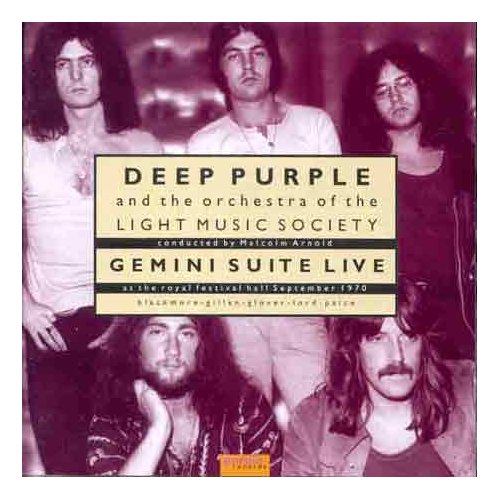

Commissioned by the BBC in 1970, following the success of Jon Lord's Concerto For Group And Orchestra, The Gemini Suite again paired Deep Purple with conductor Malcolm Arnold, to perform a hybrid classical/rock composition devoted, across five distinct parts, to the musical personalities of each member of Deep Purple, and each titled for its inspiration's star sign.Whereas Deep Purple's schedule in 1969 had afforded Lord considerable down-time in which to work on the Concerto, this time around, matters were considerably different, as a full UK date sheet gave way to an the August American tour. Much of The Gemini Suite was composed on the road, then, in the back of the bus or late night in hotel rooms, while Ian Gillan waited until the evening of the show itself before completing his lyrics, putting down the last words even as the accompanying Orchestra of the Light Music Society struck up the first bars of George Gershwin's "Rhapsody In Blue", the show's opening number.The haste does not show. Whereas its predecessor was very much an attempt to marry a rock band with a classical orchestra, the emphasis of The Gemini Suite lay in fusing the best qualities of both into a seamless whole that wasn't afraid to acknowledge Deep Purple's own work in the same musical breath as the classical influences who undoubtedly hung over the proceedings. Sharp ears can pick more than a handful of archetypal Purple passages from within the piece, including several ghosts recalled from the itself-symphonic "Child In Time". Ritchie Blackmore's guitar-led movement, opening the performance, too, echoed some of the spectacular moments that he had already incorporated into the band's regular live set, while Ian Paice's movement emerged a thunderously percussive duel between the two musical disciplines, and went a long way towards proving that, in terms of sheer dynamism, rock and the classics have a lot more in common than viewers of the Concerto might ever have imagined. Despite its success, The Gemini Suite was allowed to slip into absolute anonymity. Although Lord would stage a repeat performance in Munich in January 1972, and later release a studio rendition, it would be 28 years before a recording of the actual live performance made it onto the official release schedules.